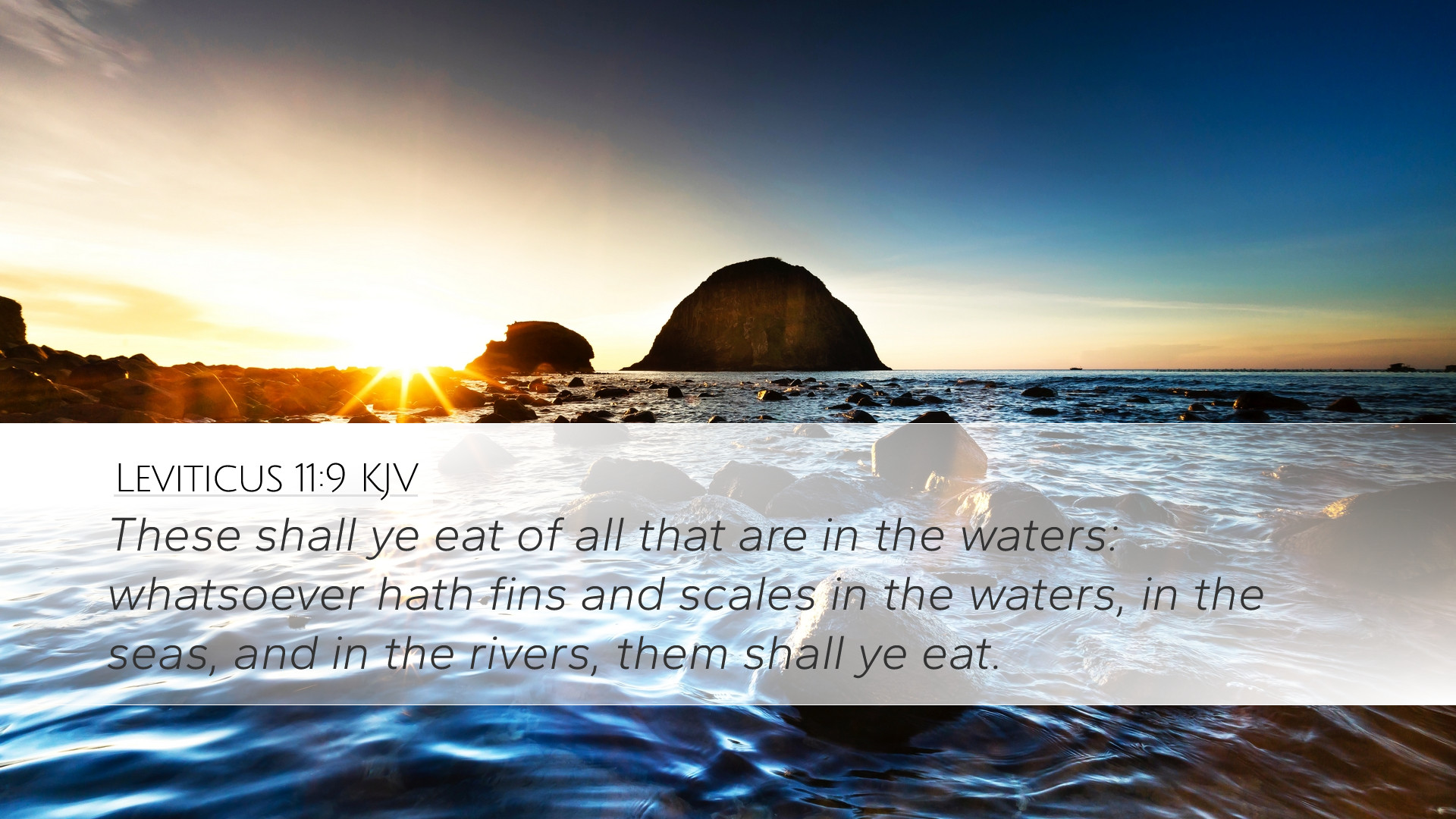Bible Commentary on Leviticus 11:9
Verse: "These shall ye eat of all that are in the waters: whatsoever hath fins and scales in the waters, in the seas, and in the rivers, them shall ye eat."
Introduction
The verse from Leviticus 11:9 introduces God's dietary laws concerning aquatic creatures. This portion of Scripture is significant in understanding the holiness and separateness that the Lord intended for His people. The dietary regulations serve not only as a means of physical health but also as a symbolic representation of spiritual purity.
Insights from Matthew Henry
General Overview
Matthew Henry emphasizes that the laws given to the Israelites were intended to promote cleanliness and ensure adherence to God's commandments. He notes that the specification of fins and scales signifies creatures that are pure and suitable for consumption. The distinction here reflects God's desire for His people to pursue righteousness and avoid anything that might defile them.
Spiritual Symbolism
Furthermore, Henry points out that this passage may also highlight the necessity for believers to discern between what is sacred and what is profane. Just as the Israelites were to eat only those creatures that met God's criteria, believers today must engage in the spiritual discipline of discernment, accepting only what is edifying and pure.
Insights from Albert Barnes
The Importance of Fins and Scales
Albert Barnes elaborates on the significance of the characteristics outlined in the verse. He states that the presence of fins and scales is indicative of a creature that lives a clean life in its natural habitat. Barnes suggests that God, in His wisdom, provided these dietary laws with practical health benefits in mind, protecting the Israelites from potentially harmful aquatic life.
Application of the Laws
Additionally, Barnes discusses the broader application of these dietary laws. He states that these regulations were not merely mundane rules; they were deeply connected to the identity of the Israelites as God's chosen people. As such, adhering to these laws reinforced their covenant relationship with God and their uniqueness among the nations surrounding them.
Insights from Adam Clarke
Historical and Cultural Context
Adam Clarke provides a thorough historical and cultural context for understanding Leviticus 11. He remarks that the ancient Near Eastern cultures had various dietary practices, often linked to their religious beliefs. Clarke posits that the Israelites' adherence to God’s commanded diet was a direct counter to the practices of surrounding nations, which often involved the consumption of taboo animals.
The Nature of God’s Command
Clarke emphasizes that God’s command in this verse reflects His nature as a holy God. He insists that the dietary restrictions serve as a reminder to the Israelites of their calling to holiness, urging them to reflect on their relationship with God and their responsibilities as His people. Thus, the dietary laws were more than mere restrictions; they were a means of steering the hearts of Israel towards a deeper understanding of God’s character.
Theological Implications
The laws surrounding dietary restrictions, particularly in Leviticus 11:9, can be seen as foretelling the moral and spiritual requirements of the New Covenant. The emphasis on purity and distinction remains relevant as believers are called to a higher standard. This verse invites reflection on how modern Christians interpret food regulations under the New Testament while maintaining the core principles of holiness and separation from worldly defilement.
Conclusion
Leviticus 11:9 serves as a foundational text for understanding dietary practices within the framework of biblical law. It illustrates the need for cleanliness, spiritual discernment, and adherence to God’s commandments. By integrating insights from various commentaries, it is clear that the dietary laws reflect a broader principle of holiness that should permeate the lives of believers, urging them to pursue purity in both their physical and spiritual practices.


